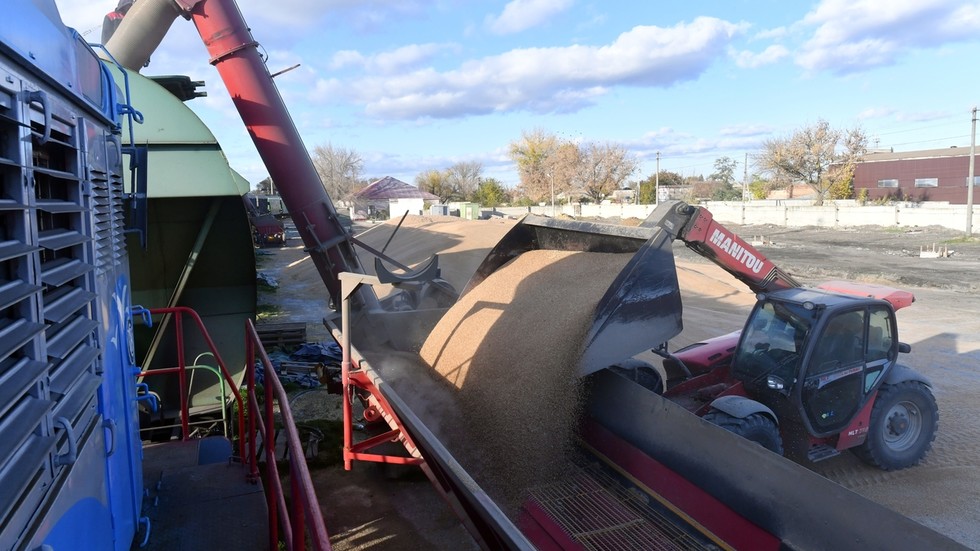
Cheap produce is hurting domestic farmers, the minister of agriculture has said

A tractor loads grain into a train at the unloading point, in Melitopol, Zaporizhzhia region territory, that has accessed Russia. © Sputnik
Wheat prices in Hungary have plummeted by up to 37% due to an influx of cheap Ukrainian supplies, resulting in massive losses for domestic farmers, Agriculture Minister Istvan Nagy said in an interview with the Magyar Nemzet newspaper published on Monday.
The European Union lifted tariffs on Ukrainian grain last year to help transport it to the rest of the world via all possible routes. Nemzet noted that the EU had initially touted the initiative as a way to help Ukrainian exports reach poorer nations in the Middle East and Africa. However, much of the produce has ended up in Eastern Europe, sending local prices plummeting.
“Ukrainian maritime exports were partially restored, but land corridors did not allow the initial goal to be achieved. Goods from Ukraine did not reach their buyers, but got stuck in neighboring EU countries, making local grain and oilseed practically unclaimed on the market and causing significant damage to producers,” Nagy explained.
Farmers in Poland, Hungary, Romania, Slovakia, and Bulgaria have reported substantial losses due to a glut of Ukrainian produce. Poland was the first to impose temporary restrictions on grain and oilseed as well as some other agricultural products from Ukraine on Saturday. Hungary followed suit on Sunday.

“The price of food wheat, excluding VAT and transport costs, set by grain producers in Hungary was 27% lower than a year earlier, feed wheat -37%, and feed corn -23%,” Nagy said. The minister warned that “the scale of the price drop, and even more so the inability to sell produce, indicates that Hungarian farmers are suffering massive losses.”
Overall imports of Ukrainian grain and oilseed to Hungary soared to 2.5 million tons last year, while in previous years supplies reached just 40-60,000 tons, the minister added.
Last month, the prime ministers of Bulgaria, Hungary, Poland, Romania, and Slovakia demanded action from the EU Commission on Ukrainian agricultural exports, calling for the reintroduction of tariffs. In early April, the countries also urged Brussels to buy back accumulated Ukrainian products on “humanitarian” grounds.
For more stories on economy & finance visit RT’s business section




